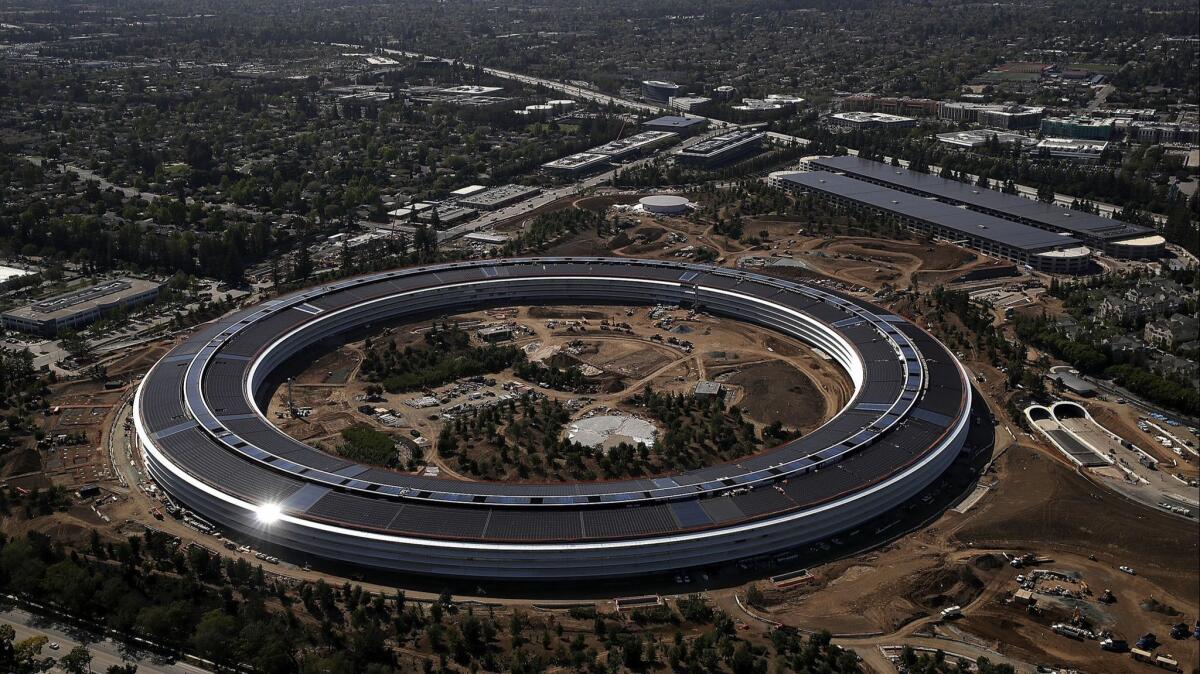Second Apple worker charged with stealing robocar data for Chinese firm

- Share via
An Apple Inc. hardware engineer was charged by the U.S. with stealing driverless car secrets for a Chinese company, the second such case since July.
The company discovered that Jizhong Chen, who was hired in 2018, had taken photographs inside a secret workspace and had downloaded 2,000 files, including manuals and schematics for the robot car project, according to a complaint in federal court in San Francisco. Prosecutors said Apple considered disclosure of the data to be “enormously damaging.”
When questioned, Chen didn’t tell Apple he had applied for a job with a China-based autonomous vehicle company, according to the complaint. He informed Apple this month that he intended to travel to China to visit his ill father.
In July, another Apple employee was accused of stealing information about the iPhone maker’s robot car project to be provided to a China-based competitor.
Apple has been working on an autonomous vehicle project for several years. It began around 2015 with the goal of developing a fully self-driving electric car to compete with Tesla. In 2016, Apple scaled back the project to focus almost exclusively on developing the underlying software and hardware that could eventually power a self-driving car, whether that is one designed by Apple or a partner.
This year, under new leadership hired from Tesla Inc., the company yet again scaled back the project, shifting a couple hundred of its employees from the autonomous software team to its other artificial intelligence teams inside the company. According to the latest theft case, Apple has approximately 1,200 employees working on the autonomous vehicle project, which is known internally as Project Titan.
An Apple spokesman didn’t immediately reply to a request for comment on Chen’s case. Chen’s attorney didn’t immediately respond to phone and email requests for comment.
More to Read
Inside the business of entertainment
The Wide Shot brings you news, analysis and insights on everything from streaming wars to production — and what it all means for the future.
You may occasionally receive promotional content from the Los Angeles Times.










